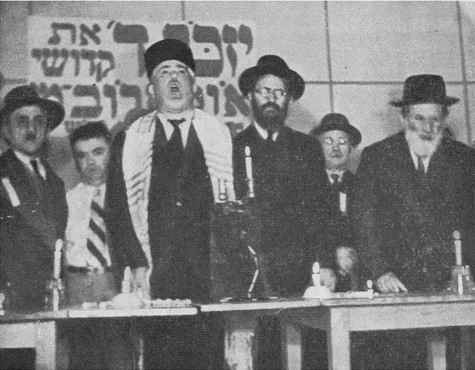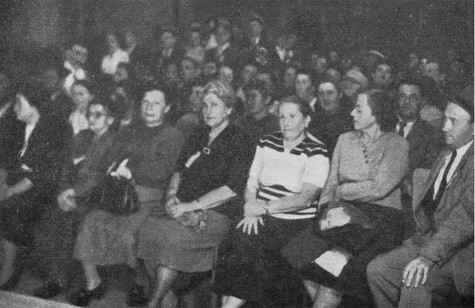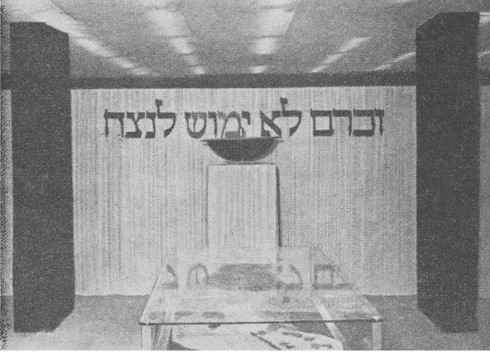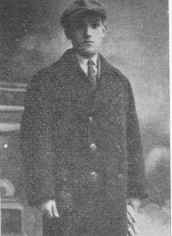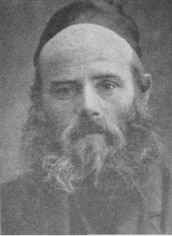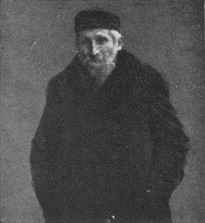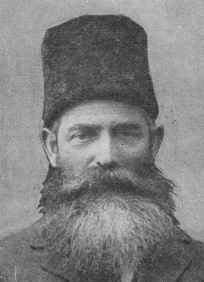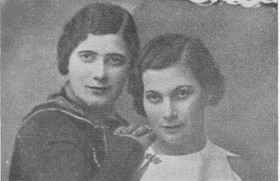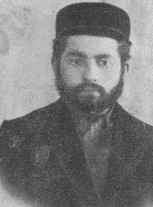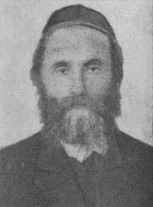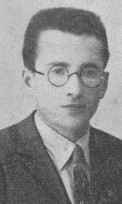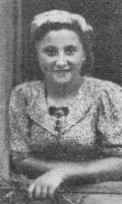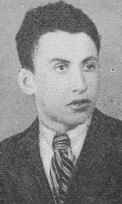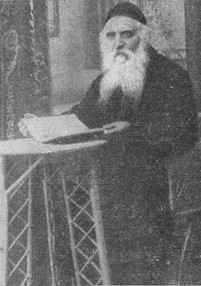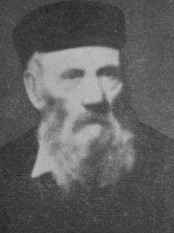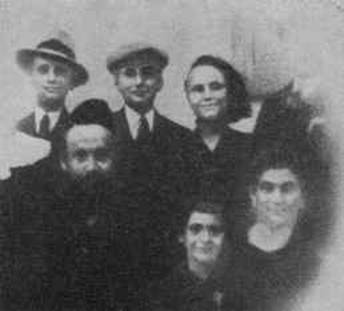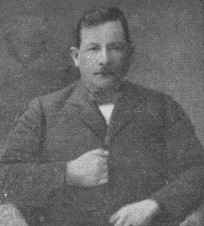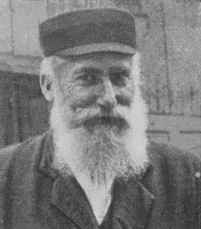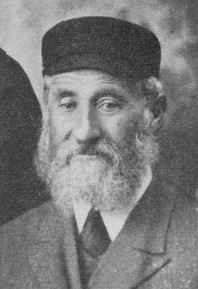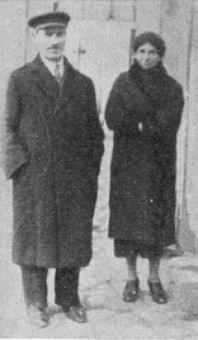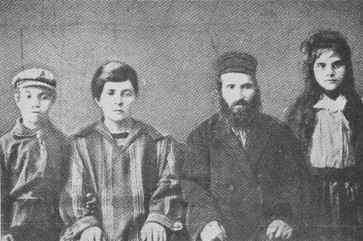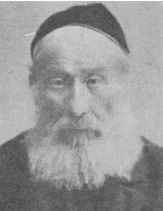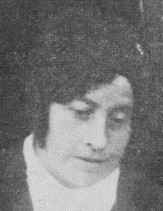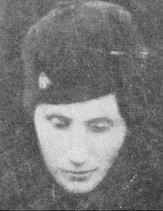Ostrów Mazowiecka
Yizkor
|
|
One of the memorial services that place every year 29 Heshvan [11 November] – in Tel-Aviv |
|
|
The attendees in the hall |
Yizkor!
Remember What AmalekDid to You!
Translated by Ros Romem
|
Let us remember with pain and with fierce indignation the souls of our holy and pure brothers and sisters who fell at the hands of impure murderers who have no semblance of G-d.
Let us remember the loss of the works of the Torah and wisdom, the nobility of the Children of Israel, the chosen of the ancient and the new culture, the glory of humanity, from the elderly to the children, possessing every true quality: righteousness, charity, love of humanity and devotion.
Let us remember all the brilliant gifts, the light of G-d that illuminated the dreams of many, the hopes and desires, the aspirations and love of Israel, the faith and valour, the hatred and scorn for the savages.
Let us remember the synagogues and religious schools, the charitable institutions and compassion, the houses of study and libraries, the institutes that were dedicated to working for the people and for Israel.
Let us remember all of those who were annihilated, cut down, destroyed and ploughed under by insane evil men, unclean souls.
Let us remember, we will not forget.
Yizkor...
By S. Shalom
Translated by Smadar Donitsa Schmidt
Wherever I go I hear footsteps. - My brothers are in the roads, in the swamps, and in the woods, - It is dark all around them and they freeze in the cold, Haunted by fire, plagues and fears In the rain, snow and storms. Wherever I stand I hear knocks, - My brothers are in prison, in gloomy cells - They cut through the walls and break the silence, From one generation to another their echoes cry out In the prison camps, in the dungeons of ghosts. Wherever I lie I hear voices, - My brothers are dragged as cattle to be slaughtered - From burning fires, from heaps of ruins, From cities and towns - burnt offerings on the altar; The groans of their loss terrify my night. And my eyes will never cease seeing them, And my heart will not cease crying- abominable acts! And everyone will be sued for their death, And the sky will weep for them, And the whole wide world is a tomb on their graves. |
Yizkor!
In the Diaspora
By Shalom Kaspi (Zylberman)
Son of Kalman and Frejda Zylberman
Translated by Ros Romem
Nights of Adar [February]. Almost twenty years old…It is so good to close one's eyes, to rest one's tired head in one's hands and to contemplate. Outside it is stormy and the wind howls. An echo resounds from a distance, as if it comes from one's sleep.
In the past things were good. It was warm. One had a home and a mother in that home. Today I am twenty years old. Nothing is better than to hold your head in your shaking hands and to sink into silence.
I left everything behind. My room was left behind, disordered and broken into, its doors, cupboards and lamps smashed. From a loaf of bread to the clothes in the closet, everything was torn and ripped.
And the mother. I too had a mother. A loving mother. Sad and pale. She was the essence of compassion and gentleness, encircling us. The shelter of the sanctity of love.
Where are you, Mother?
The end of every day – evening. And the evenings multiply and become one long night. And so sad. It is all a reflection of that red night when I left my parents' home forever. The sky above us was red, a threatening sky. Lonely, thousands of us poured into the stormy might, to the heart of the night that sealed our future.
An abandoned flock, we hastened towards the unknown. Behind us the sword was poised. Before us – terror. And we went. And behold, here we are, a small group of young people, awaiting our destiny.
A small group. Only now banded together, crowded together, becoming one great body, hurting and excited, one heart beating. Our home is poverty stricken: a table and a bench, a cupboard and a bed, a loaf of dry bread. On the wall – the Hebrew newspaper. Below us the town is full of activity. Thousands of workers, thin, pale people. The sounds of a big city. It stops at the entrance to our house. We are under curfew. We are waiting, expecting and hoping.
Only the radio keeps us in contact with the times – the terrifying present. We whisper a prayer. Spare us from our fate. Leave us calm in the storm. Have compassion on a small youth group, kneeling before you, waiting in trepidation.
And the house…begging for salvation again and again. The mother writes: Have mercy on us dear son and return to us. The skies are cloudy…who knows what awaits you there? Come back, my son, return. The heart is torn in two. There Father and Mother beg. Here a small band of young people.
The verdict is decided.
Yizkor!
The past…so near to you and far away, far away.
When did I awake from the slumber of my youth and open my eyes to see the world? It seems only yesterday. It was good, I was never hungry. And I always had a warm bed, white and restful. The dream was sweet, but rapidly faded. It exploded into the rock of reality.
When did I suddenly awake and consider myself a refugee in exile? Twenty years have passed and behold I am in exile, a refugee from a terrible storm, carried on stormy waves of stormy times, in a strange city, a boy without a home.
What my mother feared took place. The conquering boot, green uniforms, curses in the language of the victors. And a full month which seems like a long day, like a generation. I was beaten. Did I feel pain? They trampled me with their boots. Before my eyes they beat my father. In the dark of night they violated the house. He saw death. Twenty times they aimed the gun at the heart. And you with your twenty years did not react, did not kill and did take revenge. You also did not try to smash your head against the rock. You did not go made…you lived.
Recently Mother escorted me on my way to exile. Pale and tremulous she led me to the gate and she was shaking all over. And you did not look back because you knew that if you were to look back, you would turn back and would run back. But no, you left forever.
Mother! You son, the rebel prays for you in his loneliness, in the distant city. She sees you in his vision. Mother, your rebellious son, who left you alone in times of terrible dangers without bread at home; your son who innocently thought that he was wise and wiser than you; whose narrow paths crossed your wider ones; your son who in pursuit of his happiness, which eludes him, left you alone and he himself has gone to distant places – your son has not yet found his happiness.
Mother, you son is still wandering among strangers. And he hugs the storm to his heart. And of it all he is left with only the dance and the song. The lump of coal. In our wanderings everything was extinguished. But this was not – our faith in tomorrow, in the future.
Yizkor!
Shalom Kaspi (Zylberman)
By Chaim Milsztejn
Kvutsat Nitsanim – G.B. Maapilim
Printed in “HaOved HaZioni” [“the Zionist Worker]
14th Kislev 5703, 23 November 1942
Translated by Ros Romem
Shalom Kaspi (Zylberman) twenty-two years old, a native of Ostrów Mazowiecka, was in the last reserve company that reached the Kibbutz Baderech in Łódz before the Polish War [translator's note: World War Two].
A humanist, modest and sensitive, a romantic, dreamer and poet; quietly and gently he accompanied us, on tiptoe. He had an inclination for study and creativity. On his arrival he did not rest until he had been admitted to the teachers' seminary. Day and night he spent learning and working, studying and perfecting, writing and creating. Around him there was a tumult of life, refugees and crisis, war and the collapse of countries, but he found his own niche among us and continued his studies and work. Thus he prepared himself for life in the homeland. During the period of sovietization he was an instructor of the Zionist Youth Movement in Wilno. He translated chapters from the book “El Hagvul” [“To the Border”] for Jewish youth. He was also among those whose occupation tied them to the place. On the day the Germans invaded, they were surprised and were forced to look for refuge. He saw murder and cruelty with his own eyes, including in his native town that passed from hand to hand. Also on his prone body the boots of the enemy soldiers trod with anger. These memories gave him the strength to look for a refuge. But this time he was not saved and the hand of the enemy captured him.
We, friends with a common past and a common vision, stand here shocked, mourning for those who fell along the way and our hearts are full of fear. Where are the rest of the dear friends who disappeared in the days of the storm and who now have no address?
Yizkor!
Reb Abraham Jakob Frydman hy”d
The Personality of a Genius
By Tuwia Makower
Translated by Ros Romem
Reb Abraham Jakob was born in Nowogród near Łomża. Even though he was the only son of rich parents he left his father's house at a young age to attend yeshivos. The last one was the famous Wolożyn Yeshiva and he studied there at the same time as Chaim Nachman Bialik. The best scholars were at this Yeshiva and everyone admired his sharp mind, which grasped each difficult issue with ease. His grammar was excellent and he excelled at foreign languages and bookkeeping.
Until 1924 he was head of the kehilla and from that time onwards he was a member of the kehilla. He was pleasant to all those asking for advice or for a favor and did his best to help them. This man was very modest. He objected to any publicity.
This is a story about Jewish religious law in which five well-known rabbis were involved in 1928. He appeared as a pleader, representing the community and he presented his case for two hours – he brought proof and evidence from the first and last arbiters – until the rabbis were amazed at his genius. They suggested publishing his arguments in a booklet, but as a modest person he vehemently opposed this. Whenever a paper he had written was brought to the government office, the Polish clerks would show it to one another, admiring the beautiful style and how concisely he clarified matters.
He was one of the Shas Society teachers in the new besmedresh. When it was his turn to teach, even the scholars would prepare, because his lessons were a spiritual pleasure. About this it is written that the words of the wise are heard in quiet. One could undoubtedly say that he was one of the outstanding individuals of his generation.
He died in Slonim and his wife died in Ostrowa on the darkest of days, 29th Heshvan 5700 [11 November 1939] hy”d.
May his righteous memory be blessed.
Rabbi Reb Jeruchem Fiszel Dan,
Rabbi of Kossowo hy”d
By his sister, Rachel Kehati (Dan), Israel.
Translated by Ros Romem
Jeruchem Fiszel, who already showed exceptional abilities as a child, was famous in the yeshivos as a boy genius. At the age of fifteen or sixteen he was authorized to teach. When the family moved to Ostrów Mazowiecka he became an assistant to gaon Rabbi Reb Meir Dan Plocki zz”l and was very close to him. Keeping with family tradition he was a Gerer Hasid and was very close to the admor and his family. He was also active in Agudas Yisroel and was elected to the Central Committee.
Chaja his wife helped him in his rabbinical and public duties, for she was a good-hearted person and his home was open to all the needy.
During the Holocaust Rabbi Jeruchem Dan had the opportunity to save his own life and that of his wife but he preferred to remain with his congregation. He died with them in Tishre 5702 [September 1941].
During the time of the “round-ups” when the Nazis hunted down Jews, the Rabbi and his wife hid in different places. When the rebetzin learned that the rabbi had been captured she came out of hiding and joined him. They personified the phrase from the bible “…were lovely and pleasant in their lives and in their death they were not divided”. All the Dan family together with a lot of Jews from Ostrowa were deported to Slonim and there they were murdered by Hitler's hoodlums hy”d.
Yizkor!
|
|
|
||
His son, Menachem Josef |
|
Mordchai Ber |
Reb Mordchai Ber Tarnowski hy'd
By Arija Margolis
Translated by Sara Mages
He was born in Drochiczyn, Polesia, studied in various Yeshivot and devoured knowledge in the Torah, in the questions of the six orders of the Mishnah and their commentators, and was one of the local scholars.
He was the son-in-law of Reb Hirsz Wolf z”l, a known proprietor in the city.
Even when he was supported by his father-in-law, he continued with his studies until he entered the burden of life and became a grain merchant. He was also a partner in one of the city's flour mills.
Even while he was busy with his business he didn't cease from engaging in the Torah, and belonged to the Warka Hassidic Dynasty.
He was rewarded that two of his sons and his two daughters immigrated to Israel and settled there. He also carried affection to the country in his heart, and dreamt of immigrating there. But his dream was never achieved and he remained in the Diaspora.
At the outbreak of the war, the deceased z”l., who was 63 years old, was murdered together with his 20 years old son Menachem Jozef, z”l., by the murderers' cursed hands.
In a letter that was received after the tragedy from his wife (who was killed later along with her family in Slonim to which they fled), he was killed in this manner:
On the Sabbath, 25 Elul 5799 [9 September, 1939], the second day of the German occupation of our city, a company of Nazi soldiers broke into the deceased's house and found him studying the Gemara (Masechet Sukkah) together with his son Jozef, hy”d. They took them outside with great cruelty, removed his son's watch, and shot him and his son in front of his wife.
The two murdered martyrs were left outside next to their home. On the next day, his daughter-in-law came out together with a few other women and transferred the bodies to the cemetery. They dug one grave for the father and son, and so, “The lovely and the pleasant in their lives, and in their death, were not divided”…
Hitler's soldiers, may their names be blotted out, didn't let them finish the burial, and drove them away with blows and threats.
May their souls be bound up in the bond of life. hy”d.
His sons and daughters in Israel carry their grief in silence together with the rest of the country.
Yizkor!
Reb Josef Prawda hy”d
Translated by Ros Romem
Reb Josef Prawda z”l was born and educated in Warszawa in the home of pious Hasidic parents. He was the son-in-law of a townsman, Rabbi Icchok Gerszon Warszawer z”l, who was also a Hasid.
He had been lucky and had done well in business. He was known to be a generous philanthropist and host. His home was wide open to various guests every day of the week, including Shabes and Yon Toyvim. When a rabbi or other important guest visited him he would serve them himself with courtesy and respect.
He also loved books and acquired a rich library including very valuable books that he bought regardless of cost.
His wife Rachel hy”d, was a modest woman who had the same good nature he did. She made do with little, despite being rich.
His charity and good deeds were of no help to him with the arrival of the Shoah. He was the first victim in Ostrowa at the outbreak of World War Two.
On the 4th day of the war armed soldiers, may their names be cursed, dropped five massive bombs on our town. The first hit him and his home. It amputated his legs. Icchok Gerszon, his fourteen year-old son was killed on the spot, together with an eighteen year old youth who worked in his shop and Reb Lejb Jarmus hy”d, a guest who was staying with him.
His wife Rachel, the rest of their sons and an old woman called Nesia, for whom they cared, were killed together with the people of our town on that bitter day 29th of Heshvan 5700 [11 November 1939, hy”d.
May their souls be bound up in the bond of life.
Reb Jakob Szwarc hy”d
Translated by Ros Romem
He was one of the important people of our town. He was a pious, G-d fearing, Hasid. He spoke the perfect truth in which his heart and lips were equal. One could truthfully say that he never told a lie.
For years he was a member of the kehilla and if there was an argument about any public matter, in which one of the council members wished to ignore the truth, Reb Jakob z”l would jump up and ask “ Can this be? How could one believe one thing in one's heart and yet voice another.”
He was one of the big businessmen in our town. He used to hand out all the day's earnings as charity to various people - and they kept the money and he did not benefit from it.
At the outbreak of the First World War the anti-Semitic District Minister Pentiliow used this opportunity to place Reb Jakob Szwarc and Dr Klaczke at the top of the list with other prominent Ostrowers, who were to be taken hostage and transferred to Russia. He was imprisoned in unbearable conditions, without proper food or clothing and taken to Białystok, later to Minsk and then to one of the distant towns of Russia.
At the end of the War he returned to Ostrowa broken and exhausted. A short time later his wife Chaja Frejda z”l died. She had been an important and educated woman who ran his business while he was exiled.
This tragedy greatly affected him and his business ventures declined. His situation worsened from year to year. During the Holocaust, when the Second World War broke out, he again began to wander. He managed to cross the Russian border, but collapsed from starvation and exhaustion and died in the little town of Zareby Kościelne. Their eldest son Abraham died in their lifetime before the war. His second son Cwi, together with his wife and sons were murdered by the Nazis hy”d.
May his soul be bound up in the bond of life.
Yizkor!
Reb Aron Jasinski hy'd
Translated by Sara Mages
|
He was born in 1870 in a small town in Poland, and came to Ostrow-Mazovyetsk as the son-in-law of the Hassid, Reb Mosze Szwarc z”l, one of city's important citizens.
When he was still young he immediately became famous as a great Torah scholar, who didn't boast about his education, but was involved with people and infused them with his wisdom. He influenced all who knew him with his pleasant manners and moderation.
Even when he was already one of the great important merchants in the city, he set time for Torah and engaged in community needs with trust.
He was the founder of “Kupat Gemilut Hasadim” [benevolence fund] for housing, and directed it with exemplary dedication for the benefit of those who needed it.
Over time, the range of his public activities continued to expand, and he was elected as chairman of the Jewish Community Council. When “Kupat Gemilut Hasadim” grew and expanded its scope of operations, he continued to lead it to ensure its prosperity.
When the Ger Hassidim established the Shas [six orders of the Mishnah] Society for the study of the “daily page”, he was given the role of a teacher and explainer. He managed to attract many listeners and students of the “daily page”, who didn't belong to the Ger Hassidic Dynasty, with his teaching methods and the pleasantness of his explanations.
After the lesson he visited the community and the rest of the institutes that he led.
He inspected and examined their activities and answered those who approached him with kindness and patience, and tried to fulfill their requests to the best of his ability.
With the outbreak of war, he moved to Slonim together with his family. There, the oppressors' hands, may their names be blotted out, struck him and his entire family when the Jewish community of Slonim was liquidated. hy”d.
Reb Dawid Lichtensztejn hy'd
Translated by Sara Mages
|
Reb Dawid Lichtensztejn z”l was a handsome man, and his graceful delicate face, which was adorned with a beautiful long beard, aroused respect.
His house was wide open for counsel and advice to all who came, and was always willing to help generously to charitable causes.
Decades before, he was among the founders of “Linat Tzedek” [hospice for the poor].
In 1924 he was elected as chairman of the Jewish Community Council, and proved his talent in managing the community's interests, just as he excelled in his knowledge in matters of trade and book keeping.
He was murdered along with his wife during the liquidation of Slonim's Jews. hy”d.
Yizkor!
|
|
|
||
|
|
His two daughters Chaja and Tama hy'd, |
Anszel Knorpel hy'd
By Tuwia Makower
Translated by Sara Mages
He was born in the city of Pultusk and arrived to Ostrow-Mazovyetsk after one of the Ger Hassidim, who was called by everyone by his first name, Hassid Dan, took him as a son-in-law.
The deceased z”l – who was a great scholar and “heedful of a light precept as of a weighty one” [Avot 1-5] – was also a fanatical in his opinions without compromise in matters of religion and tradition.
He opened a vinegar factory, and was very successful in his business until he was considered to be one of the city's rich. He always gave from his money to the poor with an open hand, and fulfilled the deed of benevolence with generosity.
For a certain period of time, he was a member of the city council as a representative of “Agudat Yisrael”. He was elected twice as chairman of our city's Jewish community. He had a “strong hand” in matters of religion that aroused, of course, debates with his political opponents and all of those who fought his views. They acknowledged his honesty and his strictness to protect the public's finances. With this behavior he earned respect and appreciation even from his opponents.
His two daughters, hy”d, were killed during the great slaughter in Ostrow on 29th Heshvan 5700 [11 November 1939]. Reb Anszel and the rest of his family, who moved to Slonim, found their cruel death there together with the rest of the refugees and Slonim's Jews. May his memory be blessed. hy”d.
Yizkor!
Reb Elijahu Lach hy”d
By N. Dimandsztejn-Scesak
Translated by Ros Romem
I can still see Reb Lach in my mind's eye. I saw in him the combination of Torah wisdom and good character. He was a handsome man. His long beard and his constant smile that illuminated his face were unforgettable. He interspersed his conversations with passages from the Sages and from the Torah. He was a scholar.
He represented the Agudas in the kehilla and in the rest of the organizations, mainly at the “Yesodot HaTorah” and “Beit Jakob” schools.
He spent a lot of money to establish Jewish schools so that Jewish boys and girls would not have to go to the Polish schools. In hard times Reb Elijahu was a fountain of hope. The Poles declared a boycott of Jewish stores. Reb Elijahu firmly stated: “Learn to stand and fight fearlessly and look to a better tomorrow. It will in all probability come”.
On my long and difficult path his words echoed in my ears: “Learn to fight fearlessly and look to a better tomorrow which will in all probability come”. I did not know what kind of tomorrow we were to expect.
Hitler's gangs spread death and destruction all about us. After some time he was able to escape to Zambrów, which was in Soviet hands. From there he moved to Lachwa. When Germany attacked Russia in 1941 Reb Lach was caught by the evil arm hy”d.
Rabbi, Gaon Reb Icchok Dawid Mincberg hy”d
By Tuwia Makower
Translated by Ros Romem
Reb Icchok Dawid was born in Luków in 1902. He was the son of the righteous Gaon Rabbi Jerachmiel Jeshaja Mincberg. He was the rabbi of the communities of Zedonska Wola and Luków in Poland. When he was young he married Gitel, the only daughter of a resident of Ostrów Mazowiecka, Reb Elijahu Lach, an Amszynower Hasid, a learned and generous man. From his youth the Yeshiva student Rabbi Icchok Dawid was steeped in the study of mishnah and poskim [authority on questions about rabbinic law], an expert on the overt and the covert. He was a Hasid and was close to the Gerer Rabbi. He had a sharp mind and common sense He was also an active community worker mainly in the field of education, being one of the founders of the network of “Yesodot HaTorah” and “Beit Jakob” schools in our town. By nature he was modest and he rejected offers to be the rabbi of towns and communities which chose him.
Before the outbreak of the war he was one of the heads of “Yeshiva Chochmei Lublin”. In 1939, while escaping the Nazis he reached Lachwa, accompanied by his elderly mother-in-law. His wife and their seven daughters were deported to Siberia, where they were spared and now live in America. But his only son perished in Wilno.
From the day of his arrival in Lachwa he became the spiritual leader of the community and he especially took care of Jewish refugees families from Poland.
His advice was very encouraging. He helped Reb Dow Lupatin to save the local community under the threat of the sword at its throat.
The advice of Rabbi Icchok Dawid to some extent contributed to the great achievement that during the fourteen months of the Nazi regime in Lachwa not a single Jew was killed.
While he was in Lachwa during the Soviet occupation he did not cease his community work and he organized the sending of packages of Passover matzah to those deported to Siberia.
On the day of the uprising in Ghetto Lachwa he appeared together with the local rabbis covered with a tallis and wearing tefillin reading “Shema Yisroel” and sanctifying the Lord.
Yizkor!
|
|
|
||
Son Lejbl hy”d |
|
Rabbi Pecyner |
Rabbi Reb Abraham Pecyner hy'd
Translated by Sara Mages
Rabbi Abraham Pecyner was a prodigy. He was always first in class in all the “Khedarim” [religious elementary schools] that he attended. His name came to fame especially in his childhood, when he came to study with the most famous Gemara melamed in Sokoli, R' Leibel son of Hillel z”l. He aroused astonishment - and his Rabbi's admiration by the sharp questions that he asked about Rashi [RAbbi SHlomo Itzhaki], Tosafot [commentaries on the Talmud], or Maharsha [our Teacher, the Rabbi Shmuel Eidels]. A few years later, Abrahmtzi, as he was affectionately called, studied in the Yeshiva of the genius R' Avrahamle from Sochaczew, and also there he was considered to be one of the few prodigies. Later he became an expert, married and settled in Ostrow- Mazovyetsk. He was known in the whole area as learned and sharp witted. He could've easily find a Rabbinate position, but he remembered the saying in Pirkei Avot [ethics of the fathers] “Don't make….an axe to dig in it” (Avot 4), and engaged in trade in order to support his wife and his family. But most of his work was setting time for the Torah and the fulfillment of - “You shall meditate in it day and night”.
From time to time he published articles in various religious newspapers. He raised his sons in the spirit of the Torah and Masorah [traditional text of the Bible], and was particularly careful about instructing his three sons who became great Torah scholars.
R' Abraham was liked by all the members of the city. When the Nazi murderers arrived, R' Abraham fled with his family to the city of Bialystok, and from there to Slonim where he perished together with his wife, sons Lejbl, Dawid, and Zelman, and daughter Chana, hy”d.
|
|
|
|
|
|||
His son Zelman |
|
Daughter Chana |
|
Son Dawid |
Yizkor!
|
Reb Jechiel Slucki hy”d
Translated by Ros Romem
The personality of the departed was entirely one of glory and splendour, drawing respect from everyone. Anybody seeing him with the long, white beard thought that he was seeing the Prophet Elijah, as he passed from house to house, enjoying Elijah's cup that awaits him according to the traditional Passover Seder. Without exaggeration one could state that Reb Yechiel had the characteristics of the Lamed Vavniks, according to the people.
The departed was blessed with the best of characters, as were the elite of our town, being a Hasid and a modest man who performed the mitzvah of studying day and night. He drew from the well of Torah and gave others to drink.
Every Shabes and Yontef he would teach the “Tiferet Bachurim” minyan at his home before prayers. He would explain the Portion of the Week with good taste and pleasantly. His method of teaching was so well liked by those who heard him, both for its content and method that it kept them at the table, eager to listen to him for hours on end.
His partner for life, his righteous wife, Henja Leja e”h was his close companion, plain and simply, who worked hard all her life to support her family and to allow her admirable husband to dedicate his time to Torah, to good deeds and to the love of mankind.
These lines should serve as an everlasting light to the spiritual exaltation of their pure and holy souls, hy”d
Reb Icchok Prager of Jadów hy”d
Translated by Ros Romem
He was known as Reb Izce Jadower, a respectable, pious Hasid. He was a well-known personality in Ostrów Mazowiecka, whom everyone treated with respect.
He was the Bal Tefillah for Yon Toyvim, at the Admor of Łomża, zz”l and at the end of his days at the Admor of Radzymin zz”l.
Yizkor!
The departed z”l came to Ostrowa before the First World War, was a ritual slaughter and examiner by profession. He retired and devoted himself to communal matters, which he performed with dedication.
He was also a famous mohel [circumciser]. He never refused to travel even to remote villages. And all this work without reward.
He was the head of the famous mishnah group in the new besmedresh. He did much for the Talmud Torah and the Yeshiva. Indeed he had a warm heart for everything Jewish. The warm heart of Reb Icze z”l ceased beating when Hitler ym”sh destroyed him and his family together with the Jews of Stolin.
May his memory be blessed forever.
Yizkor!
|
|
|
||
Reb Jakob sho”b z”l |
|
Reb Abraham Cwi Polakiewicz and his family hy”d |
Reb Abraham Cwi Polakiewicz hy”d
Translated by Sara Mages
Reb Abraham was an Otwocker Hasid and came from a lineage of ritual slaughterers. At first, he was a ritual slaughterer in the city of Braynsk (Grodno region), and later filled his father's, R' Jakob z”l, place after he stopped working as a ritual slaughterer in his old age.
He was also a fine cantor with a strong pleasing voice, and many came to hear his joyful prayers. He was considered to be one of the city's scholars. He preached a daily lesson in the Talmud – the daily page – in the New Synagogue after Maariv [evening] prayer service. He educated his sons and daughters to the Torah and to good manners.
His wife, Ester Malka, May she rest in peace, was an exemplary housewife and a devoted mother to her children. She contributed to the national funds while saying - maybe one day will be able to immigrate to Eretz-Yisrael. They were rewarded that their son and daughter live in Israel, but they and other family members, didn't immigrate to Israel and perished in Slonim together with other refugees from our city. hy”d
Szolem Noach Polakiewicz hy”d
Translated by Sara Mages
He was an outstanding devoted Zionist who was elected to various positions in the Zionist's organizations in the city.
He was a member of the local Zionist Committee and its secretary for many years, a member of the “Zionist Shekel” [membership fee] municipal committee, the secretary of “Tarbut” school, and more.
He accompanied the Zionist projects with devotion and loyalty, and participated actively in their organization. He was knowledgeable in sacred and secular studies, and the Hebrew language.
He showed great interest in all the public affairs in the city.
He was active in promoting the Hebrew language, which he knew very well, and tried to convince others to learn Hebrew.
He had a strong desire to immigrate to Israel, but he didn't fulfill his desire.
Yizkor!
|
Izrael Zlotkies hy”d
Translated by Sara Mages
He came to Ostrów as the principal of “Tarbut” School, and has done a lot to establish, maintain, expand and develop it.
Immediately upon his arrival to Ostrów, he joined the Zionist and general public activities.
The Jewish community had confidence in him, and he served as the deputy mayor on behalf of the Jewish population with great talent.
During his tenure as deputy mayor, he acted a lot for the benefit of the community. His appearances on the City Hall podium honored the Jewish public. He fulfilled his duty in the municipality with dedication and accuracy.
He was a member of the Zionist Committee for many years. People flocked to him to seek his advice on various matters, and he was always willing to listen, consult, guide and help.
He perished during the Holocaust in Lom¿a along with his wife and two daughters. hy”d
Reb Szmul Ryba hy”d
Translated by Sara Mages
|
He was a walking encyclopedia, a prominent scholar, full of Torah and Jewish wisdom, a man of moral and integrity, well versed in the Talmud and its interpretation.
He was a member of “Mizrachi” [religious Zionist] organization, and the head of “Shaarei Zion” synagogue. He worked hard for this synagogue and tried to give it a deep refined content.
He fulfilled his duties to the Zionist movement, and was careful with the deeds between man and man.
He continued to learn and to expand his knowledge of Hebrew literature. He also understood the spirit of the times and the generation.
He was imbued with Zionist consciousness, and made great efforts to influence the religious in the city on behalf of the Zionist idea.
He has done a lot for the needy as the secretary of “Kupat Gemilut Hasadim” [benevolence fund]. He had a dear soul and was gentle. He was treated with respect and admiration, and was accepted in all walks of life. He educated his sons and daughters in the Zionist spirit and immigration to Israel. He was a rare type and united Torah and wisdom in him.
During the Holocaust he perished in Slonim together with his daughter Sara. hy”d.
Yizkor!
|
Reb Mosze Pokzywa z”l
Translated by Sara Mages
A native of Ostrów where he also received his education, a traditional education, as it was customary in the Hassidim's homes in those days. He gathered with the Admorim in Warka and later in Otvosk.
Although he was a timber merchant, his income was not extensive and he was laden with troubles. He devoted himself to public work, especially in the social area and in charitable acts. He was the organizer and the driving force of “Maot Chitim”*, the distribution of firewood to the poor during the winter, and such.
With the organization of the Jewish communities in Poland, he also took a prominent place in Ostrów's Jewish community, and represented “Agudat Yisrael” [Union of Israel] in its council for many years.
When the Second World War broke out, he left with his family to Soviet Russia, and there he became seriously ill and died in 5703 [1943] at age of 75.
May his memory be blessed.
*“Maot Chitim” - refers to the centuries old custom of gathering wheat to provide the poor with matzoh and other items for the observance of Pesach.
Yizkor!
|
Reb Jeshaja Orlik hy'd
Translated by Sara Mages
Reb Jeszaja hy”d was a native of Ostrów-Mazovyetsk, the grandson of Rabbi Wolf Ber z”l, our city's famous head of the Yeshiva.
He wandered to places of Torah, and studied in famous Yeshivot in Lita where he devoured knowledge in Shas [six orders of the Mishnah] and Poskim.
He married Pearl Koen, turned to trade, but wasn't successful and had difficulties earning a living.
He was liked by everyone who knew him because of his good demeanor. He was a quiet moderate man. Although he studied a lot, and had an extensive religious and general education, he didn't stand out and was humble in his ways.
With the outbreak of the Second World War, he fled with his family to Zelva, a small town near Slonim. He was murdered there by the hands of the evil oppressor, may its name be blotted out, together with his family. He was only fifty-four years old.
Yizkor!
Reb Mosze Grudka z”l
Translated by Judie Ostroff Goldstien
He was known for his good deeds. People said that he was one of the Lamed Vavniks. He gave body and soul to helping the needy, sick and poor.
He was a simple Jew, a poor man, burdened with a family. He would be seen, even at night, constantly running from one sickbed to the next. As soon as he heard about somebody being very sick, he went straight there. He did not go there, as most people do, to visit a sick person and ask how they are. He went to work there, cleaning everything, changing the bedding and putting everything in order.
He went to the very sick (with infectious diseases) whose families were overwhelmed, but Mosze just went ahead and put everything in order. When he would go to a poor sick person, he would bring something clean for him to put on.
All day he would run around trying to procure bread for the poor, or in winter a little wood: he would carry the wood and light the fire in the patient's house and if necessary would spend the night.
Every good deed that he did was done to perfection. When Mosze Grudka wanted to go to the Rabbi's court during the High Holidays, he did not drive and he did not take any bread along as he walked from Ostrowa to Ger [Góra Kalwarja].
He died in an exile-camp in Archangel District [USSR] in a coal mining accident, during the Second World War.
Remember a blessing for a pious man.
The Young Martyr Abraham Josef Baran hy”d
Translated by Judie Ostroff Goldstein
At the mechanized Ufa bakery on ulica Rozan, there was a long line of people waiting for bread, there were SS men with rifles hanging around, a Polish informant who the Jews immediately threw out of line. Herszel Baran with his son and partners were coming to work at the bakery. When the eighteen year old Abraham Josef saw that only their house would be without bread, he took a loaf and put it aside for his family. Somebody in line noticed and immediately told an SS man. The SS man shot Abraham Josef hy”d on the spot.
Yizkor!
Reb Israel Dawid Podgorowicz hy”d
Translated by Ros Romem
He was the son of Rabbi Gerszon Podgorowicz z”l– one of the famous scholars in Tikocyn [Yid. Tiktyn], who had the honour to be close to the Gerer Rabbi zz”l, the author of “Sfat Emet” [“The language of Truth”] and who was honoured to be the teacher of the admor's children
Reb Israel Dawid z”l was honored to inherit much of his learned father's character, and he was famous in the entire region as a wonderful musician and a traditional Bal Tefillah with a pleasant voice.
His prayers and singing excited hearts and when he was the Cantor during Kol Nidrei, the Synagogue was filled to capacity and hundreds of people crowded around the building outside to hear him.
It happened that high-ranking military officers and senior government officials who were not Jewish came to listen to him.
Various Synagogues and Prayer Houses offered him high salaries to persuade him to serve as their Cantor but he refused and continued his prayers at his regular place without reward.
He refused to accept important offers of employment as a Cantor or ritual slaughterer and examiner in big cities, saying “ It is better for me to carry bags of flour and bread and to make a living from my labour than to live at the expense of the community”.
He met his cruel death – together with the members of his family, hy”d - in Stolin, where he had fled during the Holocaust.
Oh for those who are gone and cannot be replaced hy”d.
Yizkor
(In memory of my murdered family)
By their son Mosze Orzycer, Israel
Translated by Judie Ostroff Goldstein
My father, Abraham Josef Orzycer, one of Jehuda's sons and a grandson of the “shrewd” and great Torah scholar Reb Szmulke of Rozan.
He was a religious Jew, well versed in Torah – an Aleksander Hasid. But in truth, I do not remember him ever going to visit the rabbi. His Hasidism was expressed through his honesty and he was well liked by everyone. He lived quietly, never complaining, and with “Shema Yisroel” on his lips when he died a martyr's death.
My mother Rojza, called Rojzele by most people, was one of Rabbi Reb Nachman Szmul Jakób Miodoser's (from Brok) daughters. He immigrated to America and from there made aliyah to Israel where he was a rabbi in Bnei Brak until his death in 5708 [1948].
My mother was also religious, but not as fanatical as my father. She wanted here sons to become rabbis. Like a lot of Jewish mothers, she did not live to see naches [joy and pride in a child's accomplishments] from her children. When she was forty-eight, she, along with her husband and four children - three daughters – Gitl nineteen years old, Malka seventeen years old, Sara Riwka nine years old and a genius son Mendl who was thirteen years old were all murdered by the Nazis.
These lines are the only gravestones to their memory.
May their memories be blessed!
Yizkor!
|
Reb Zelig Son of Zew Fryd hy”d
Translated by Sara Mages
His righteousness didn't stand before him on the bitter and impetuous day. He was among the first 560 martyrs, who were shot to death by the Nazis, may their names be blotted out.
His modest wife, Ester Rachel daughter of Lejbel Kandel z”l, will be remembered well and blessed. Despite her weak state of health she devoted herself, with all of her might and soul, to assist him in matters of livelihood and to educate their sons to Torah and labor.
Yizkor!
|
Reb Aron Bengelsdorf z”l
Translated by Sara Mages
His family lived in Ostrów for many generations. He was a Kotsker Hasid, and was considered to be one of the important homeowners in the city. He was charitable and hospitable. He left Ostrów at the outbreak of war, and died in 1940 on the way to Tikocyn [Yid. Tiktyn].
May his memory be blessed.
The woman Margalit e”h, wife of R' Mosze Goldblat z”l, and the daughter of Reb Aron Bengelsdorf z”l, was murdered together with her 6 children in Tikocyn. hy”d.
The woman, Malka e”h wife of Jozef Mandlkorn May he lives, and the daughter of Reb Aron Bengelsdorf z”l, died in exile in Siberia, Russia.
|
|
|
||
Malka Mandelkorn |
|
Margolit Goldblat |
HaRav Rabbi Mosze Goldblat z”l
Translated by Sara Mages
A native of Wyszków [Yid. Vishkov] near Ostrów. In his adolescence he was already a prominent scholar and studied diligently. He married Margalit, the daughter of Aron Bengelsdor from Ostrów, and stayed there.
Afterwards, he moved to Warsaw, where he became one of the Torah lecturers in the famous “Metivta” Yeshiva and taught many students. He was one of the important Ger Hassidism and sat next to the Admorim's table.
He was asked to serve as a Rabbi and Judge in Ostrów, but he refused for fear that he won't have the time to study the Torah.
He was murdered in Trawniki extermination camp near Warsaw together with his six children. hy”d.
